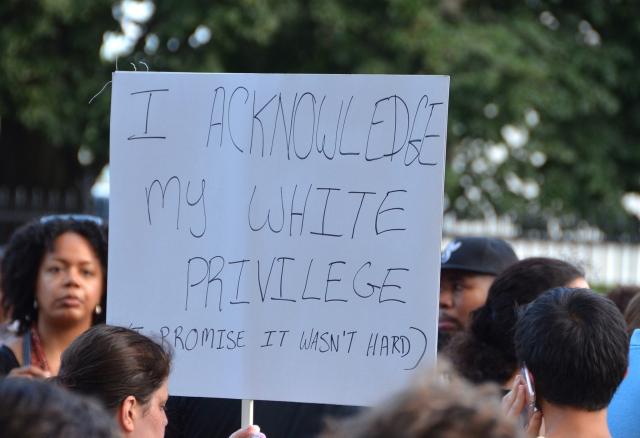How a recent conference on White Privilege changed my worldview.

I was invited to the May 9–12 White Privilege Conference at Ryerson University, Toronto, by Springwater Hester-Meawassige, Youth Leadership Coordinator for the Aboriginal Ministry Circle of the United Church. She invited me because of my participation in other United Church youth events, including Wampum Camp, and my experience attending the Truth and Reconciliation Closing Ceremonies and March in Ottawa as a witness.
This conference was an eye-opening event. Throughout the four days, I met many new people and had the opportunity to hear many passionate speakers. I can say without a doubt that listening to these speakers changed my worldview. As a White, female, middle-class, cisgender, United Church young adult, many of the struggles that the speakers faced are foreign to me; I do not face them in my everyday life.
Desmond Cole, journalist and activist, spoke about the fact that Blackness is at the bottom of the social structure and that Black people are the scapegoats of the hierarchy of society. He talked about how newsrooms share an assumption of White supremacy, and he shared many convincing stories of times that news outlets have demonstrated their racism. He also talked about the fact that the news hides the faces of White people that commit an act of White supremacy, while Black people do not get this treatment. This presentation changed the way that I look at how news is reported. I now think more critically about choices that are made.
Shirley Cheechoo, filmmaker and chancellor at Brock University, discussed her experiences with residential schools and how these experiences led to her drinking and a drug problem. She realized she had to change her life before it got worse. She told our group that she felt like residential school survivors are misrepresented. “We should be called residential school warriors, not survivors,” she explained. The word survivors has less of a meaning, in her opinion. She was an amazing speaker.
We had the opportunity to see many more inspirational speakers, poets, dancers, and musicians. It was very moving.
On the last day of the conference, a group of White supremacists protested in front of our building. The conference happened soon after a man killed 10 people with his van in Toronto. In the crowd of protesters, I saw swastikas and Confederate flags. I felt nervous and I noticed the fear in others’ faces too. However, I knew that I could easily tuck my nametag in my sweater and pass the protesters unnoticed. Others attending the conference didn’t have this luxury. For example, an older couple with their daughter needed the protection of campus security in order to leave the building just because of their Brown skin. My White privilege kept me from needing that same protection.
I am so grateful to have the opportunity to attend this conference. I feel it changed my outlook on the amount of privilege I really have. And I learned that it is essential that people with privilege acknowledge their position and work to make society more just.
—Jade Eckert is an active member of Silver Spire United Church in St. Catharines Ontario. Through participation in Wampum, Rendezvous, the Niagara Youth Festival, and the TRC Closing Ceremony, she has grown in her commitment to reconciliation and healing.